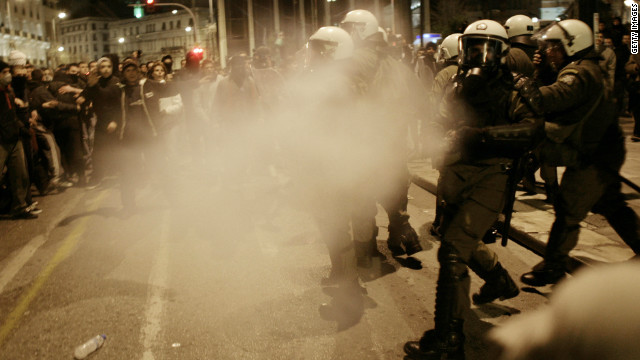Photos: Human rights watch, New York Times, CNN and Andrey Vladov's personal archive
Andrey Vladov is a journalist at the BBC. He was deputy editor of the Bulgarian section, and since 2007, he has worked in the English departments of the corporation. His journalistic career began in the  Bulgarian National Radio, where he presented the morning news on Horizon radio station. Since 1992 he has lived in the UK. He graduated in "International Relations" at the University of National and World Economy. He hosts a broadcast for alternative music on the Bulgarian Tangra Mega Rock radio station too. Andrey Vladov talks with Maria S. Topalova.
Bulgarian National Radio, where he presented the morning news on Horizon radio station. Since 1992 he has lived in the UK. He graduated in "International Relations" at the University of National and World Economy. He hosts a broadcast for alternative music on the Bulgarian Tangra Mega Rock radio station too. Andrey Vladov talks with Maria S. Topalova.
In May there will be elections for the European Parliament, the first ones since the beginning of the crisis that began as an economic one but proved to be a crisis of values in the European Union. What do you expect from these elections?
Not only the economic crisis but also the increase in the number of refugees from conflict areas such as Syria has made the nationalist and anti-immigrant parties in Europe much more popular. In May, they will probably obtain a lot more seats in the European Parliament. Although the nationalists are unlikely to be the dominant political force in terms of number of members, there is no doubt that their influence will be more than palpable. Major parties in Europe, whether in government or in opposition, are even now forced to comply with them. The fears that they are losing voters who already support anti-European organizations such as the United Kingdom Independence Party (UKIP), for example, is the reason for them to harden their positions with respect to immigration and access to social benefits. If the new European Parliament is more "nationalistic" than "pan-European" this could prevent the further enlargement of the European Union and strengthen the centrifugal tendencies within the organization.
Usually, the activity in the European elections is low. Do you expect it to remain the same this year too? Is there still a chance for the European institutions, including the Parliament to regain the empathy of citizens?
The dissatisfaction with the economic measures to tackle the crisis and with corruption among the governments of countries such as Bulgaria, Romania and Greece may drive more people to vote in May. However, I do not expect that the activity in the elections in Europe will significantly increase. As for the trust in the European institutions, it has always been traditionally low in Western Europe, but I think it is still high in the new member states. In countries such as Bulgaria where corruption is part of the everyday life of the people, the judicial system does not work well and the media are largely controlled, Brussels is perceived as the only corrective, the only force that can intimidate those who have become presumptuous in terms of power.
Britain is known for its Euroscepticism. Is it still dominating the political debate in the country? What are the moods in society?
The Eurozone crisis has undoubtedly strengthened the positions of Eurosceptics both in the ruling Conservative Party and in British society as a whole. Because of the strong Euroscepticism and the anti-immigrant attitudes in Britain, Prime Minister David Cameron now calls for the European Union to limit some fundamental principles of the organization such as the free movement of people. In December 2011, he vetoed an agreement between the member states with which they tried to overcome the crisis through new rules for national budgets. The Conservatives promise a referendum on leaving the European Union, if they come to power in 2015. The Eurosceptic UKIP party, according to some polls, is even the third political force in the country. However, Euroscepticism is facing strong resistance from both the opposition Labour Party, which is currently leading in the polls, and the coalition partners of the Conservatives, the pro-European Liberal Democratic Party. A poll conducted in March showed that the Britons who support the European Union outnumber those who are against it, albeit slightly. 41% of respondents state they would like the UK to remain in the European Union whereas 39% say they would prefer their country to leave the organization.

In Greece, one of the consequences of the crisis is political polarization and within its context, all polls indicate an extreme left party such as SYRIZA as the first political party in the next elections and a clearly Nazi party such as Golden Dawn firmly occupies the third position. Is there polarization in British political life and if so, how would you explain it? However, the Eurozone crisis has not affected the country.